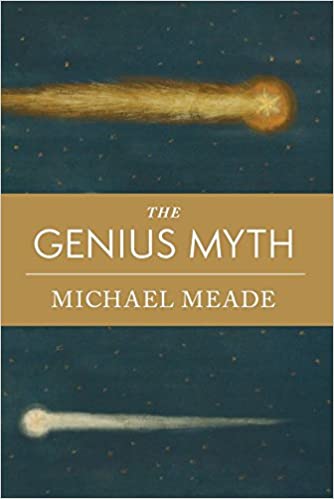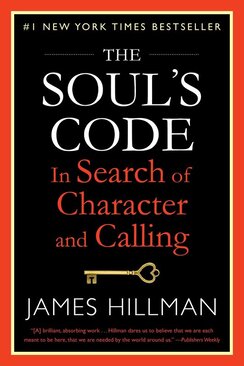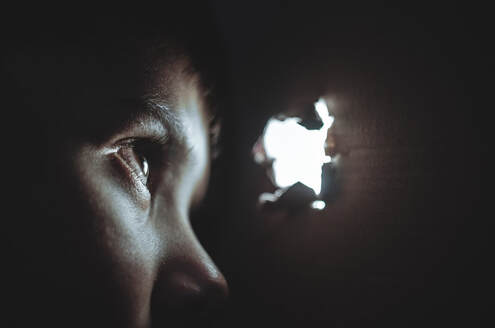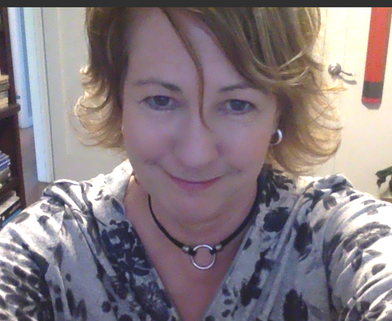Friends, welcome to the 9th edition of the "Tracking Your Wyrd" course.
It’s that time of year when many of us go out of our way, literally through travel, and sometimes psychologically through turmoil, to spend time with family. So I thought, while the topic is still hot and the travel and turmoil is still stirring, that we’d spend just a little bit of time talking about our wyrd in light of our family of origin.
|
According to the Myth of Er, and many similar origin myths, we choose the family we are born into because it is just the right family to incubate our genius. Unfortunately, that doesn’t mean they are always—or ever—supportive of our wyrd. That doesn’t mean they will—or can—see our genius. In Michael Meade’s book The Genius Myth, he notes, “The wings of genius will be present in each child born, yet the family of origins can be the last to recognize the originality and giftedness of their ‘own child.’” Sometimes—or often times—we will live into our wyrd in spite of our families, not inspired by our families. Or if we are inspired, we may be inspired to become who we are in light of who they are not. We may grow up in homes that are dysfunctional, but so the theory goes, they are functional for our wyrd, though we may have to look elsewhere for that functionality. That brings us back to previous love letters where I’ve encouraged you to look to fictional characters and to teachers and mentors to track your genius, because often times they show our genius its own reflection in a way that our family of origin cannot.
|
Meade continues, “Genius refers to a pattern and a potency that is indigenous to the person and not a derivative of the family or the society we belong to by birth. Genius is the exception to all norms and to most rules and therefore it involves becoming conscious of qualities and capacities that distinguish us from everyone else including the patterns and beliefs held by one’s family.” I think the keyword there is “distinguish.” We may share a similar wyrd with our family of origin or a member or two thereof, but ultimately, our wyrd is our own—our genius is unique. Therefore, a good way to track our wyrd is to ask ourselves, how I am markedly distinguished from this rag-tag group I call family? What patterns do I not partake in? What beliefs do I not hold? Or stated in the positive, what patterns and beliefs are uniquely mine?
|
This may be difficult for many children, to feel so distinguished from the nuclear unit which is so necessary to their survival, and from which they cannot flee unless they free themselves through emancipation, and it may be why so many children feel like they were born into the wrong family, or they came from elsewhere. In The Soul’s Code, James Hillman writes about how hard it can be for children to find a place in the world for their particular calling. He writes, “They are trying to live two lives at once, the one they were born with and the one of the place and among the people they were born into.” To live the life of the genius within the life of family and the place where the family lives—these two lives may seem at odds. That’s why I’m always so curious to know the secret lives and patterns of play of my students when they were children—I see these as the way children keep their genius alive and protected within a family which may judge them as, well, weird in the bad way.
|
I remember one of my students telling me about growing up in a full house with a lot of extended family members all under one roof. No one paid her much mind or cared about what she was doing—there was a lot of freedom in that house, and no one really kept track of her. Her favorite place to play was underneath the large dining room table, where she was protected from being seen by a floor-length tablecloth.
|
What did she play under that table? She played listening. That’s right. She took no toys under the table nor books—she needed nothing but her ears. She would sit there for hours, just listening to all the adult conversation. When I asked her why, or what she was listening for, she shrugged her shoulders. “I dunno,” she said. “I never thought of it before, but it’s kind of a weird thing to do, to just sit there and listen like my life depended on it.” I gently asked then if she was listening because she felt unsafe in the home and need to protect herself. She was quick to reply, “Oh no. It was a relatively happy home, just a loud and expressive one, and that table was where all the adults gathered to gossip about everything—family, church, community, other people’s business.”
|
Well that woman’s genius was a smart one, all right. It put her right there in the middle of a home full of people who loved to talk because the genius knew she had to get trained in deep listening, because the child was going to grow up to become a therapist, where mad listening skills are a necessity. It gave her a family that didn’t care about her whereabouts for all the right reasons, so she could go sit under that table and put in her hours of on-the-job training. Did she suffer from not getting the kind of attention she may have craved? Yes. Did she feel separate from the family, markedly distinct? Yes. Was it necessary to the development of her wyrd that it happened just so? Through the lens of this particular theory, yes.
So this month, as you gather with family virtually or in person, it’s a great opportunity to ask yourself the following questions.
So this month, as you gather with family virtually or in person, it’s a great opportunity to ask yourself the following questions.
How I am markedly distinguished from this rag-tag collection of clowns I call family?
What patterns do I not partake in?
What beliefs do I not hold?
What patterns and beliefs are uniquely mine?
What behaviors and interests distinguish me from this family?
What values do I hold that put me at odds with the family?
What strengths seem to belong uniquely to me?
Of course, in each one of these questions, you can do a reframe to look at how you are similar—in patterns, beliefs, behaviors, interests, values, and strengths—that’s a valuable inquiry too. But in terms of tracking our wyrd, I suspect looking for distinctions is far more valuable.
Until next time, be well, be wyrd.
Until next time, be well, be wyrd.
If you’re interested in a more in-depth study of how to bring your wyrd and your genius into more congruence in your vocational life, consider my course Deep Vocation: Restoring Your Soul’s Purpose, Power, and Pleasure. Click here to learn more.





